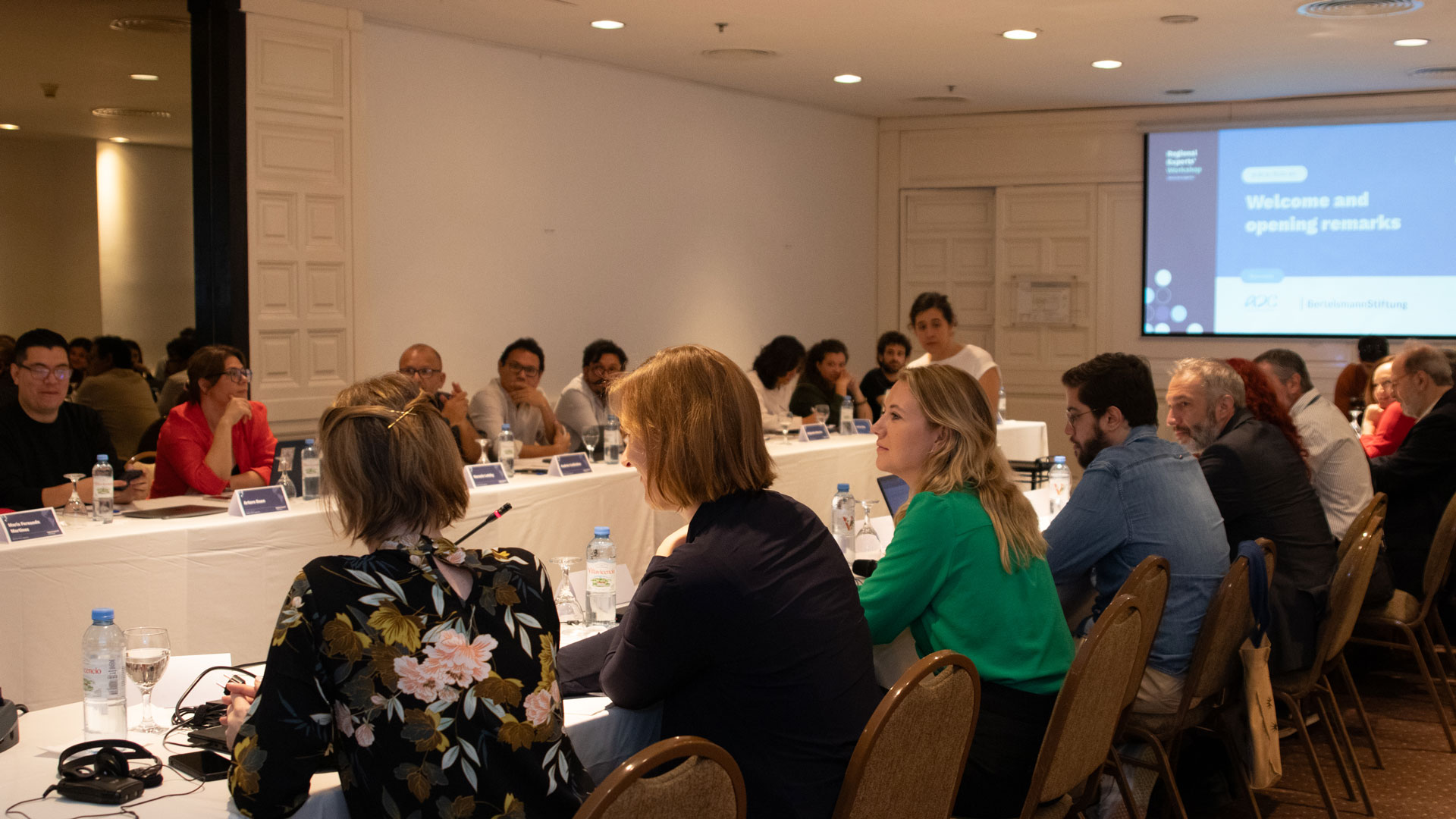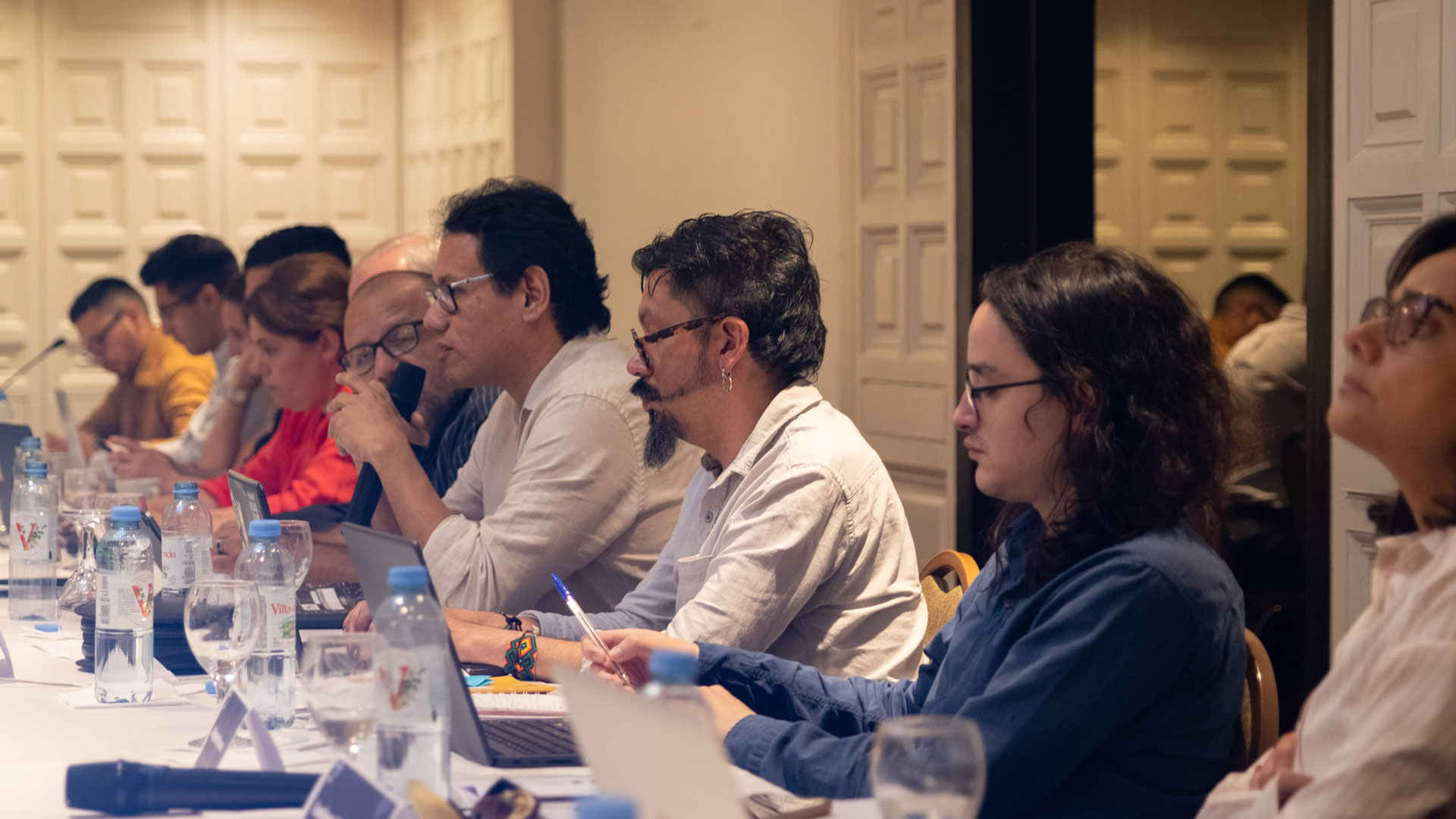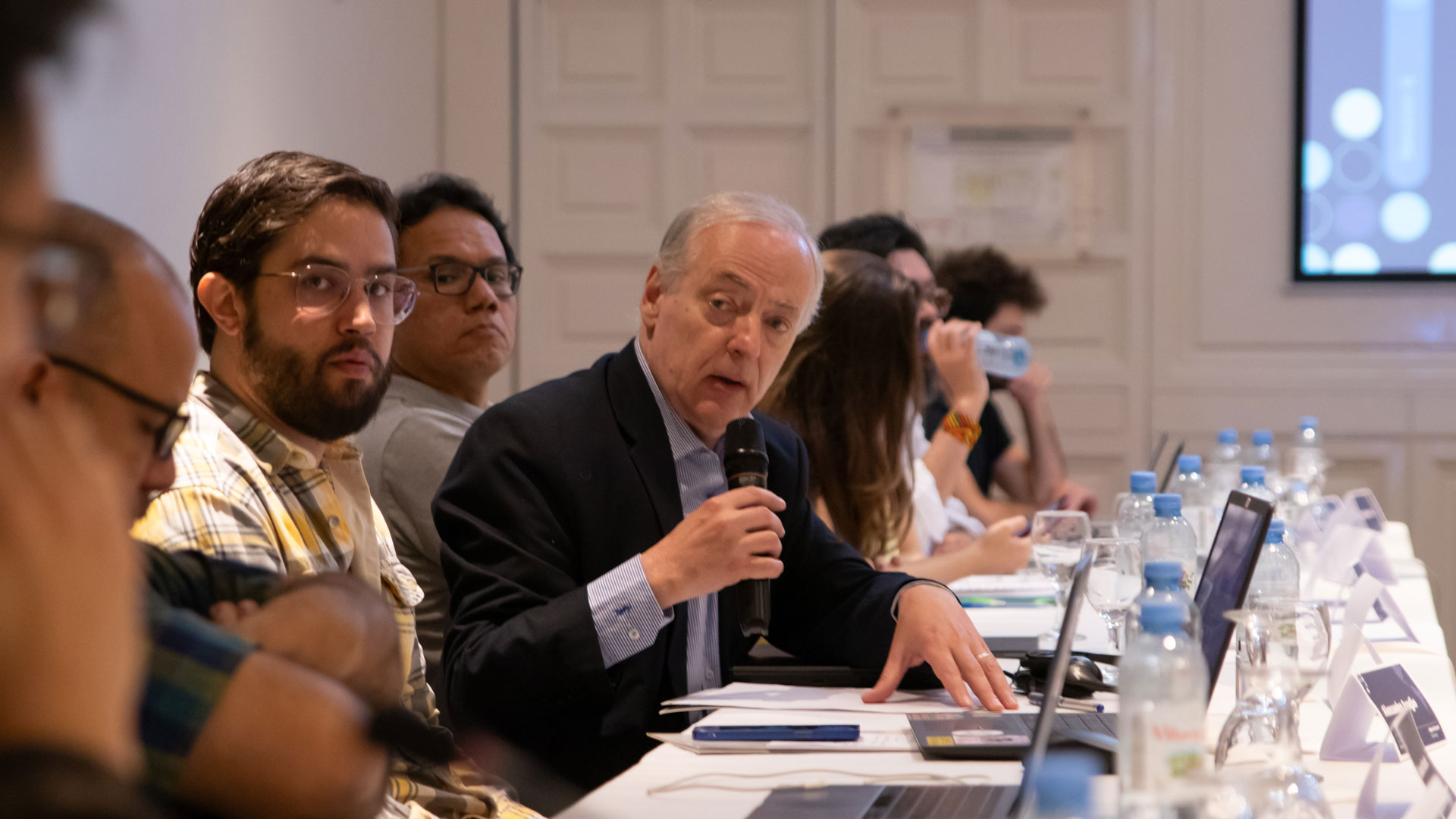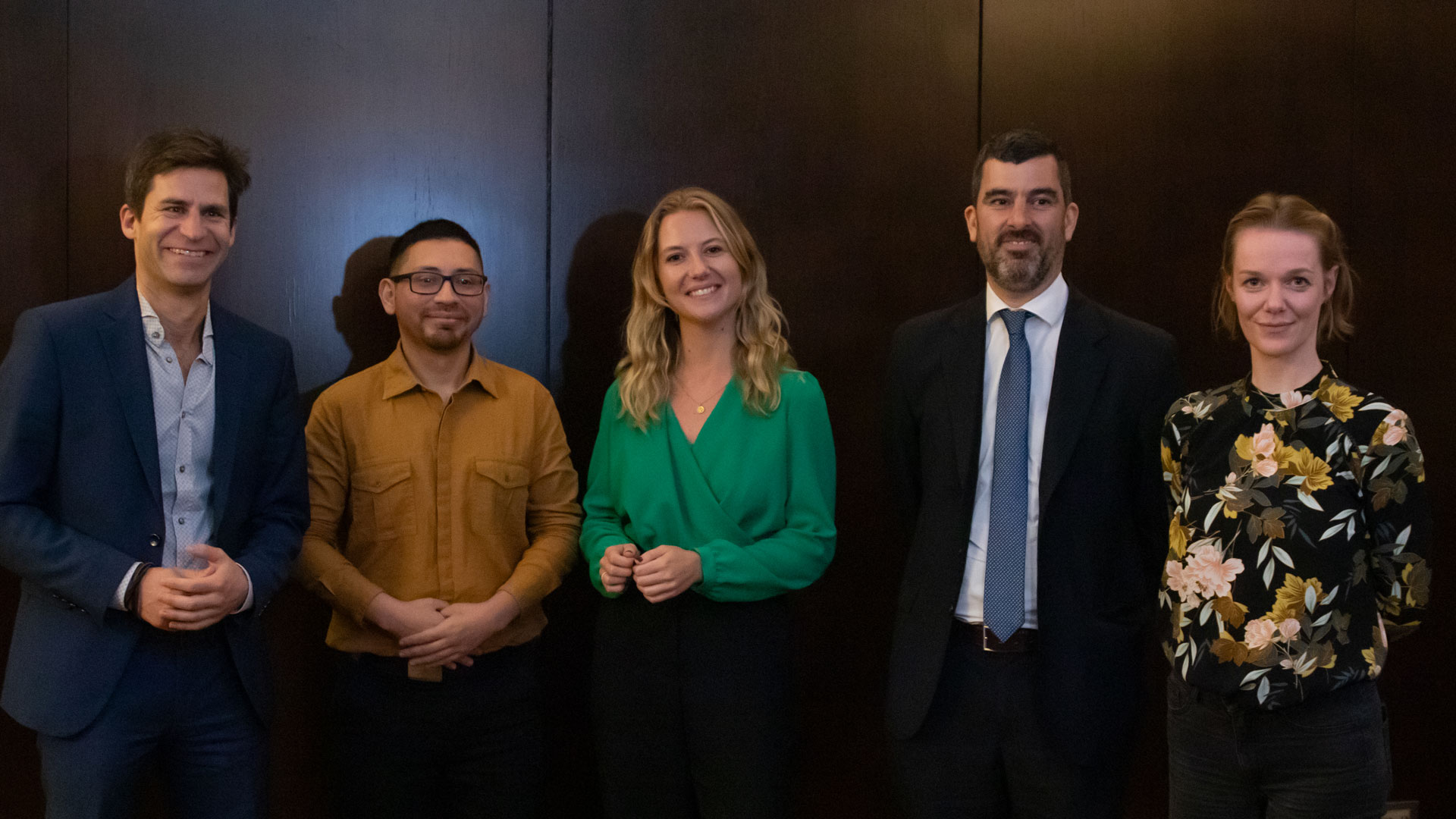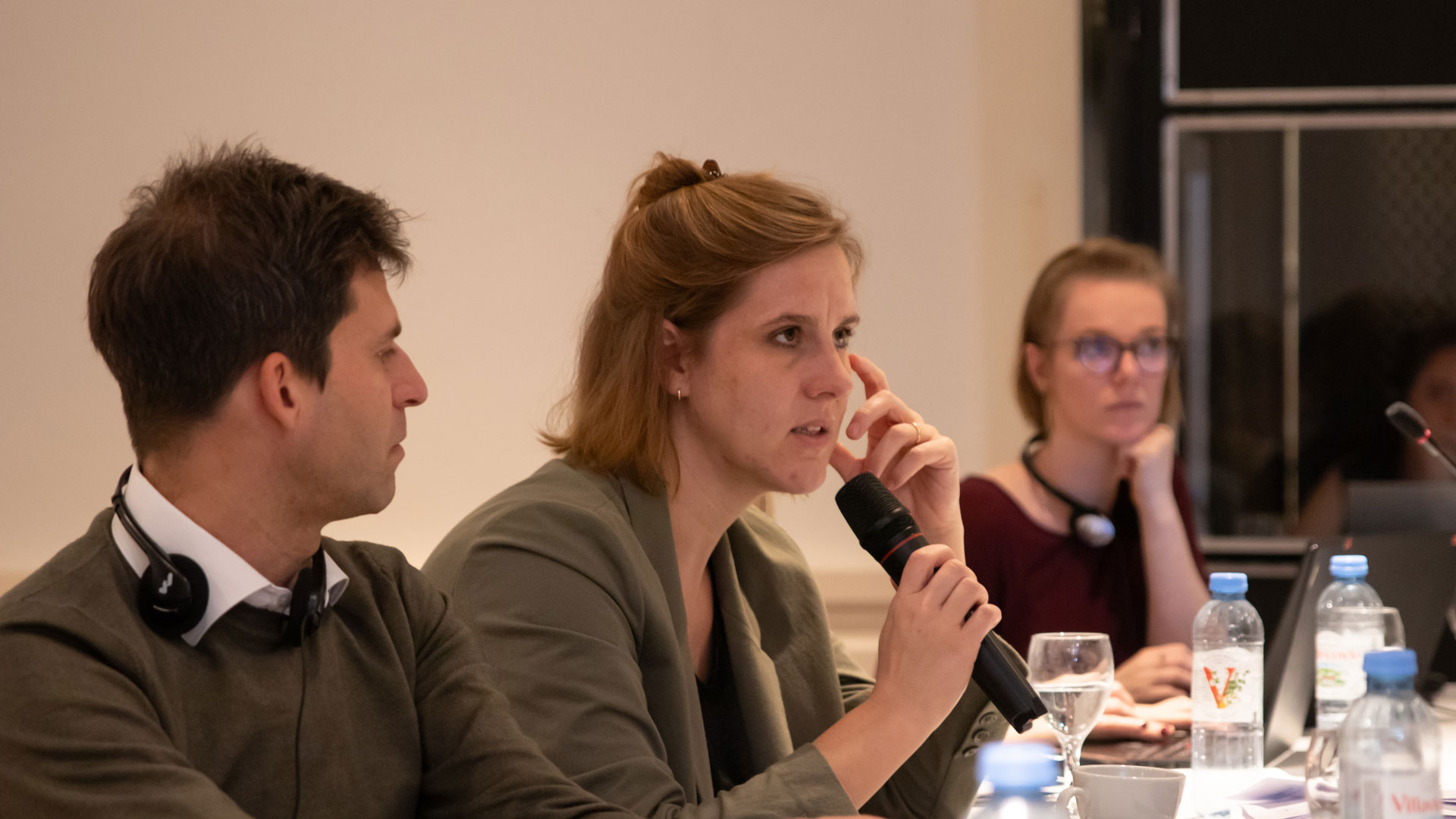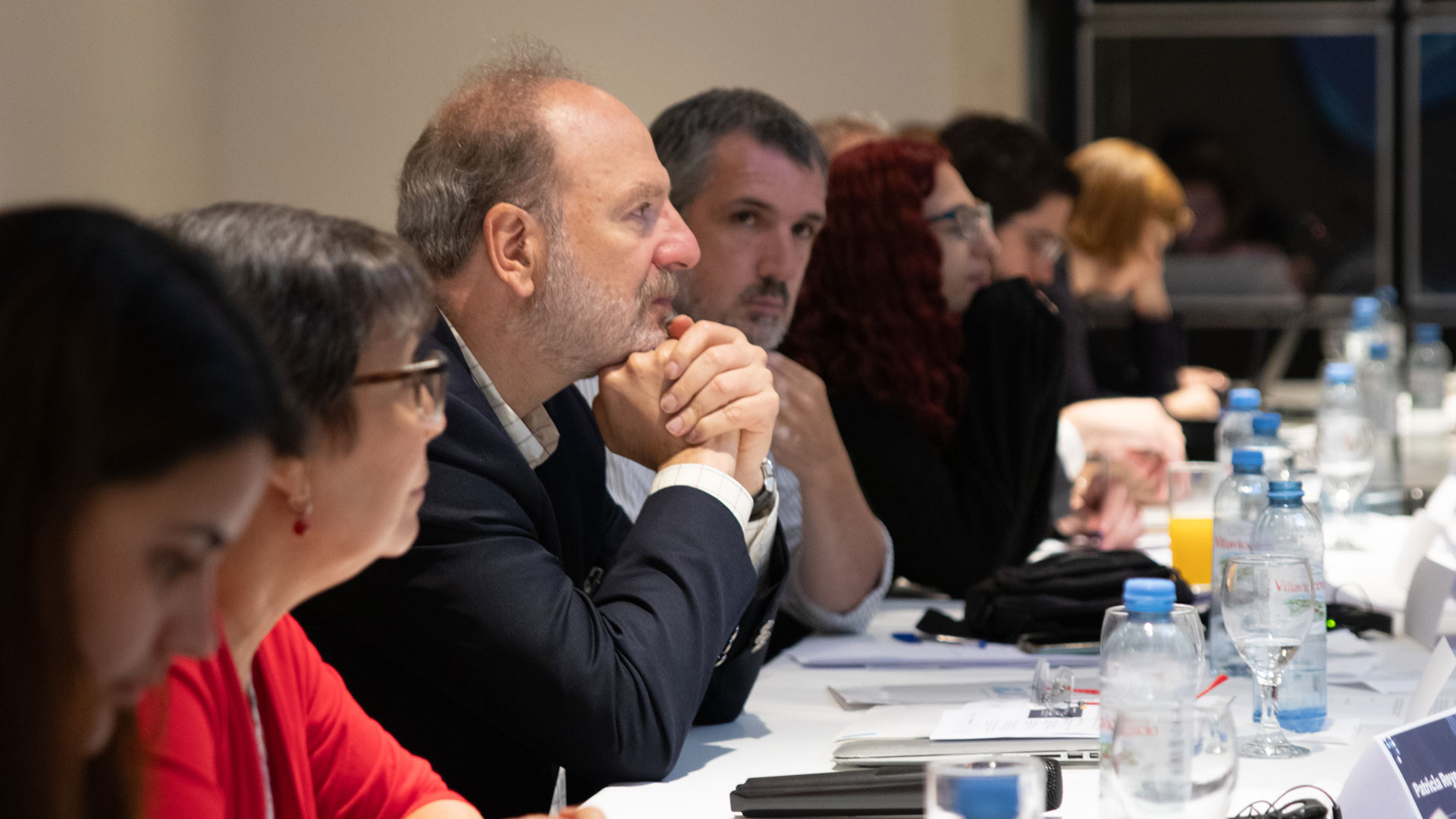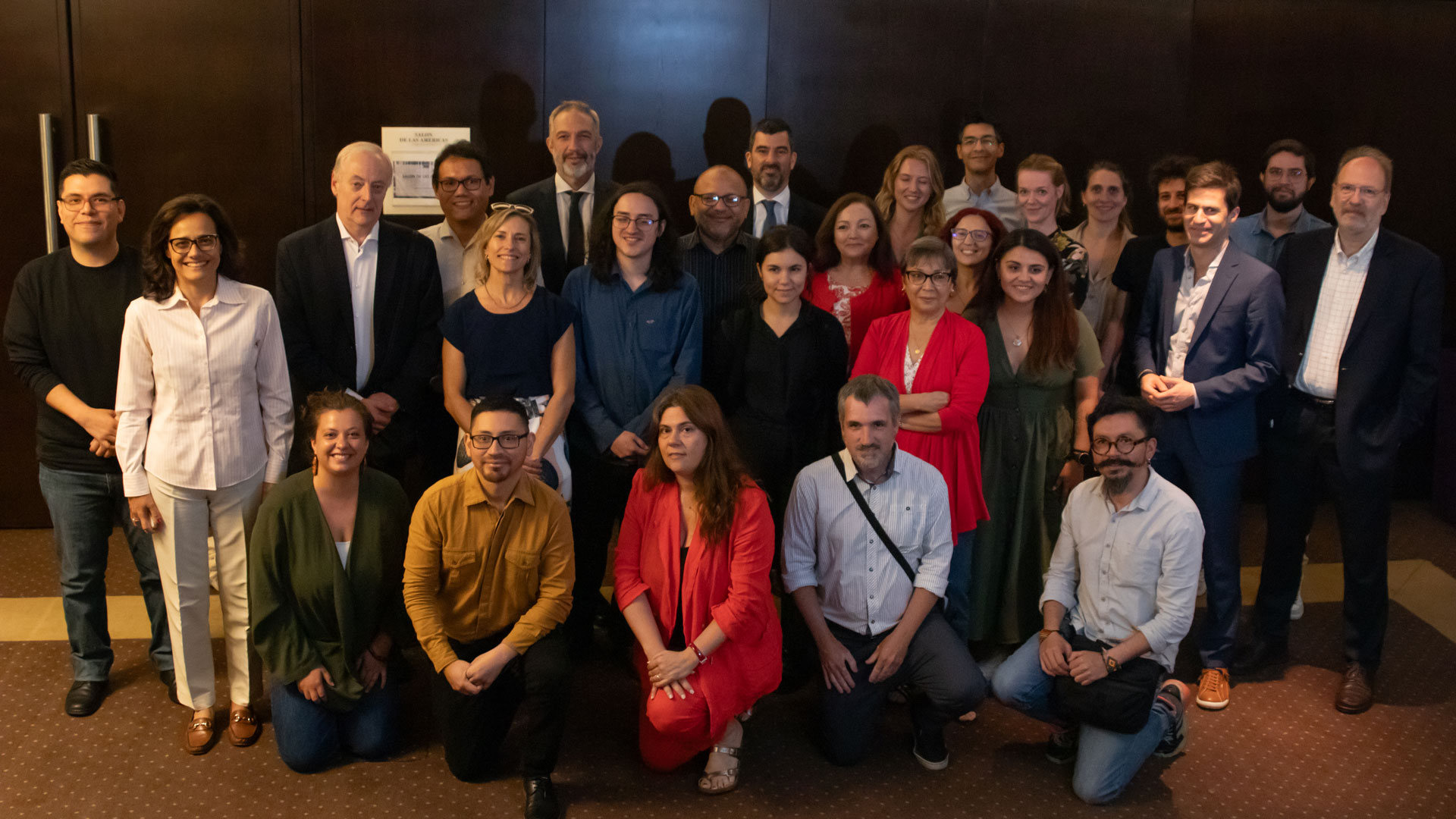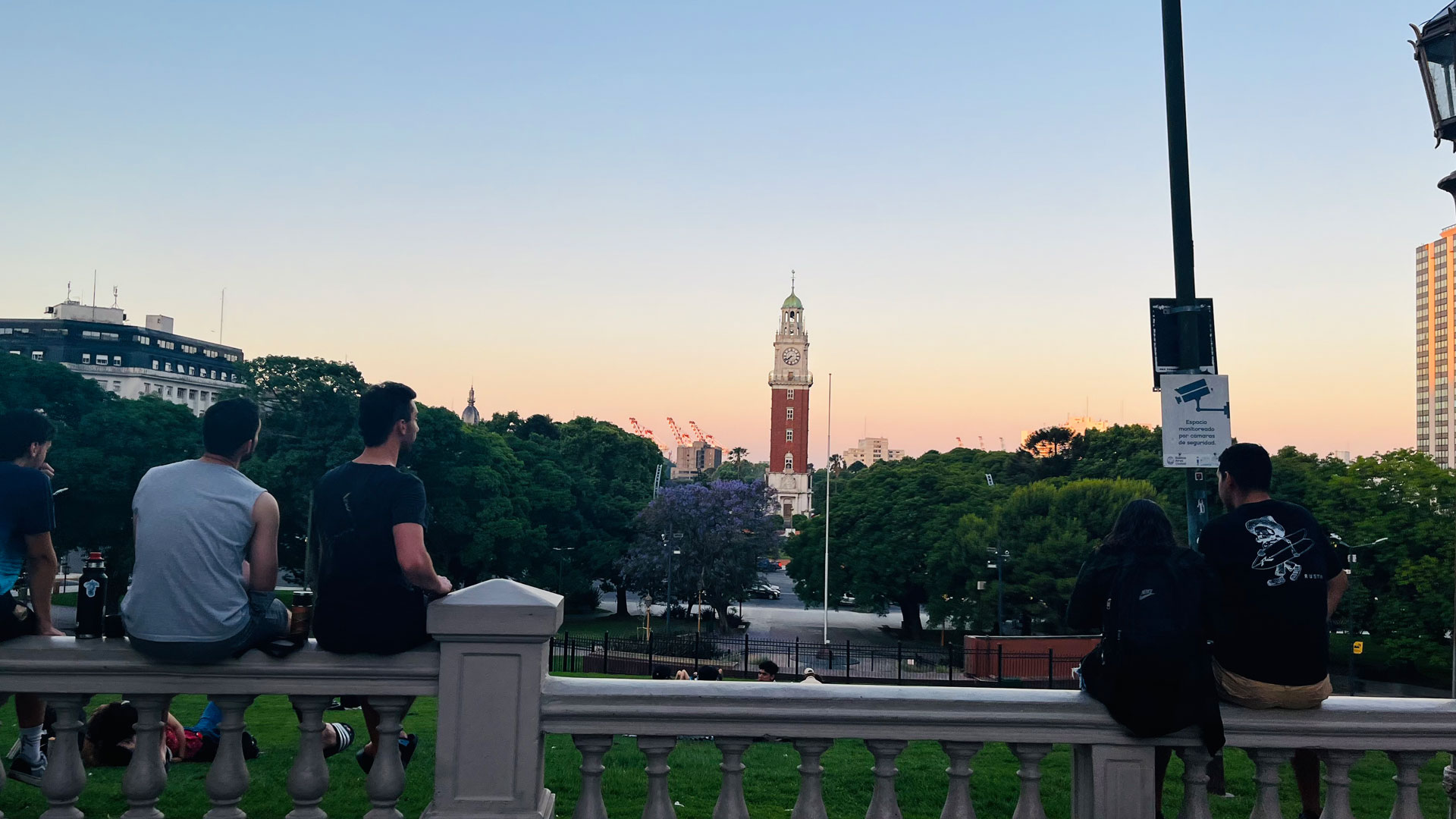1
27. November 2023 Setting the stage: Disinformation in Latin America – its spread and impactThe 2-day workshop took place in a unique setting. The participants discussed democracy, freedom of the press, and the impact disinformation can have on the two, only one week after a groundbreaking vote had taken place: On November 19th, Argentinians had elected Javier Milei, a self-proclaimed anarcho-capitalist and political outsider, as their new president.
The Argentinian elections posed an adequate backdrop for the unfolding of the discussion since disinformation, spread by governments and political actors, is frequent across Latin America, as illustrated by the preliminary research findings, the ADC team shared to set the stage.
Besides Argentina, cases from Mexico, Venezuela, Peru and Brazil were showcased. Many participants underlined how the lack of a stable and pluralistic media landscape in their countries favours disinformation, thereby complicating counteractive efforts.
Similarly, the importance of social media platforms and the companies behind them became evident: WhatsApp for instance has usage levels of up to 100% in countries like Panama and Brazil, followed by TikTok, and X (formerly Twitter). Discussants explained their difficulties in monitoring WhatsApp due to the closed nature of the service and pointed to the problematic nature of zero-rating practices.
All participants called for stricter regulation of platforms to guarantee more transparency by, for example, obliging the companies to grant researchers more access. But it became clear that regulatory efforts across the region are currently limited to the national level with mixed results. The willingness of the platforms to collaborate with governments or civil society actors varies greatly across the region, depending on the relevance of the individual country for the platform’s possible revenue.
The first day concluded with a case study by Linterna Verde from Colombia, who countered disinformation during the 2022 Colombian elections by monitoring its spread and publishing fact-checks. This led to a discussion about the problems all participants encounter when trying to interact with platforms and the immense workload associated with it. Media literacy education was presented as a possible solution to the problem.


